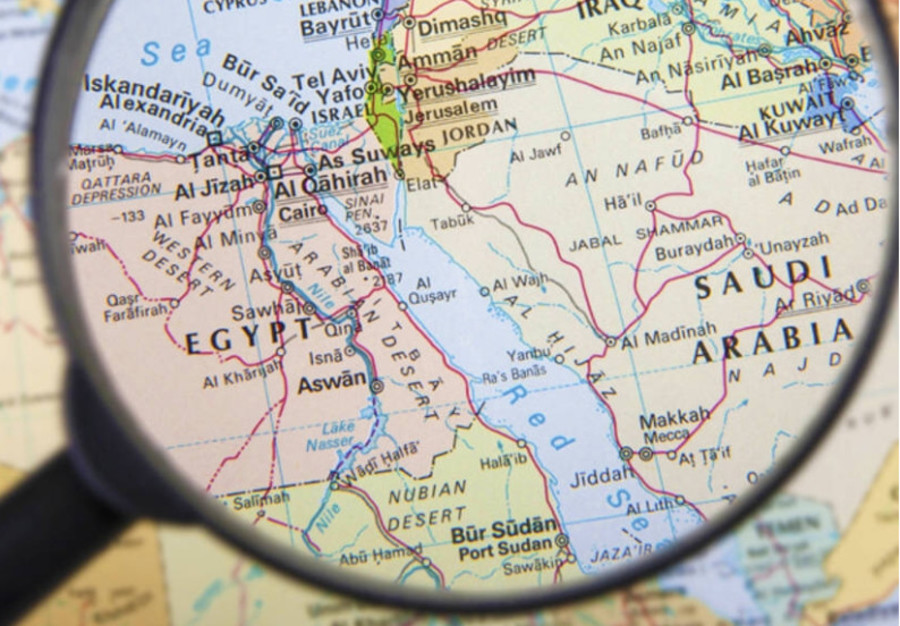Conferences and debates
Index / Activities / Conferences and debates / International relations and Middle East geopolitics
International relations and Middle East geopolitics
From March 04, 2019 until March 28, 20197:30 p.m.
CÓRDOBA
Casa Árabe Auditorium (at Calle Samuel de los Santos Gener, 9).
7:30 p.m.
Free entry until the event’s capacity is reached.
In Spanish.
Casa Árabe has organized this series of two informative conferences,
taking place on March 14 and 28 at its headquarters in Cordoba. The
series was coordinated by Haizam Amirah Fernández, a researcher for the
Real Instituto Elcano.
Why is the Middle East so important? And why does it always seem to be associated with conflicts, wars and extremism? Instead of turning to simplistic answers, we must learn about the historical origins of states in the Middle East, as well as the ways in which they relate with each other and with the major global powers. These informational conferences will provide the key information necessary to understand the factors conditioning the foreign relations amongst countries in the Middle East, as well as the role they play in the international system. Amongst other topics, we will be analyzing power relations, alliance and situations of conflict and cooperation in that strategic region.
The series will be held at Casa Árabe’s headquarters in Cordoba and will include two sessions in all, given by Haizam Amirah Fernández (Real Instituto Elcano).
- Thursday, March 14: Keys to understanding international relations in the Middle East. What are the origins of the States in the Middle East? How are the relations between them? What role is played by the international system? What factors condiction their decision-making systems?
- Thursday, March 28: Geopolitics in the Middle East: Power, interests, alliances and conflict.
Why is the Middle East so important? How do local and international role-players exercise power there? What factors contribute to creating conflicts? How are socioeconomic transformations affecting geopolitics in the Middle East?
Haizam Amirah Fernández is the head researcher on the Mediterranean and Arab World at the Real Instituto Elcano and an associate professor of International Relations at the Instituto de Empresa (IE University). He is a specialist in International Relations, political Islam and processes of transition towards democracy in the Arab world, a region where he has resided for more than 17 years. Professor Amirah Fernández has authored many articles and co-edited books on the Maghreb region and Euro-Mediterranean relations. He translated from Arabic a book by Egyptian author Alaa Al Aswany, titled On the State of Egypt: What caused the revolution. He has been an educator for two decades at universities in different countries and regions. With a bachelor’s degree from the Universidad Autónoma de Madrid and a Master’s degree in Arab Studies and Political Science from Georgetown University in Washington DC, he was a Fulbright Commission fellowship recipient. He received part of his training at the Université Libre de Bruxelles and the University of California, Los Angeles (UCLA). He has worked at the United Nations (New York) and at Human Rights Watch (Washington DC). Professor Amirah Fernández is a regular commentator in the Spanish and foreign media. He speaks Spanish, Arabic, English and French.
Event series organized in collaboration with the Real Instituto Elcano.
The series will be held at Casa Árabe’s headquarters in Cordoba and will include two sessions in all, given by Haizam Amirah Fernández (Real Instituto Elcano).
- Thursday, March 14: Keys to understanding international relations in the Middle East. What are the origins of the States in the Middle East? How are the relations between them? What role is played by the international system? What factors condiction their decision-making systems?
- Thursday, March 28: Geopolitics in the Middle East: Power, interests, alliances and conflict.
Why is the Middle East so important? How do local and international role-players exercise power there? What factors contribute to creating conflicts? How are socioeconomic transformations affecting geopolitics in the Middle East?
Haizam Amirah Fernández is the head researcher on the Mediterranean and Arab World at the Real Instituto Elcano and an associate professor of International Relations at the Instituto de Empresa (IE University). He is a specialist in International Relations, political Islam and processes of transition towards democracy in the Arab world, a region where he has resided for more than 17 years. Professor Amirah Fernández has authored many articles and co-edited books on the Maghreb region and Euro-Mediterranean relations. He translated from Arabic a book by Egyptian author Alaa Al Aswany, titled On the State of Egypt: What caused the revolution. He has been an educator for two decades at universities in different countries and regions. With a bachelor’s degree from the Universidad Autónoma de Madrid and a Master’s degree in Arab Studies and Political Science from Georgetown University in Washington DC, he was a Fulbright Commission fellowship recipient. He received part of his training at the Université Libre de Bruxelles and the University of California, Los Angeles (UCLA). He has worked at the United Nations (New York) and at Human Rights Watch (Washington DC). Professor Amirah Fernández is a regular commentator in the Spanish and foreign media. He speaks Spanish, Arabic, English and French.
Event series organized in collaboration with the Real Instituto Elcano.
Real Instituto Elcano

